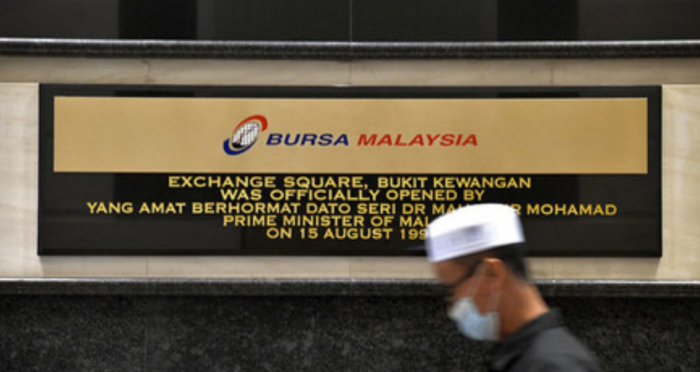By Malaysian Association of Film Exhibitors
DESPITE the announcement of the re-opening of several economic sectors including non-essential services like gyms, casinos, and recreational fishing, cinemas across Malaysia are still forced to remain closed throughout the movement control order (MCO 2.0) which has now been extended until March 4.
In other neighbouring and developed countries such as Singapore, Thailand, Indonesia, South Korea, and Japan, cinemas have been permitted to operate. India too just re-opened its cinemas today at 100% capacity.
The forced closure of movie theatres is crippling the Malaysian cinema industry, which has already lost up to 90% of revenue year-on-year with more than RM500 mil in total losses incurred in the year 2020 alone.
It is a stark contrast compared with previous years where the industry has collectively contributed over RM1.08 bil in income and over RM250 mil in entertainment tax duties to the country.

Long-term closures
With the continued closures, Malaysian cinemas will have been partially or fully closed for nearly a year since the first MCO in March 2020.
These forced shutdowns have gravely impacted the industry, resulting in countless job losses, permanent closures of cinema locations, and a significant downsizing of operations for all exhibitors across the board.
In some instances, cinema employees have even received extensive pay cuts of up to 70%. By far, the biggest loss, however, has been the exit of the country’s third largest exhibitor, MBO Cinemas which has been forced into voluntary liquidation.
In totality, over 25% of cinema screens all over the country have been permanently shuttered due to the long-term closures.
This is no longer just a crisis for the cinema industry; it is evolving into a financial catastrophe that is likely to affect thousands of jobs across a larger supply chain which serves the entire trade from end-to-end including smaller organisations in manufacturing, logistics, cleaning, food and beverage (F&B), and retail, among others.
The collapse of the cinema industry is also estimated to directly impact the livelihoods of the larger local Malay film industry, where over 20,000 Malaysians are currently employed in filmmaking and production, creatives, distribution, talent, and much more.
“As a local filmmaker, we have been adversely affected by the COVID-19 pandemic which has staggered the productions of three films including Abang Long Fadil 3, Polis Evo 3, and Mat Kilau in which we have already invested more than RM20 mil to produce,” lamented Skop Productions founder Datuk Dr Yusof Haslam.
“Furthermore, strict standard operating procedures (SOPs) enforced on the creative industry have also further impacted all artists and performers involved.”
The Government must address this situation before it gets worse. The losses incurred by cinema operators since the implementation of the first MCO in 2020 until today must also be taken into account.
“The paralysis of the cinema industry is not impossible, but should it happen, it would be difficult to recover,” added the veteran filmmaker.
In this regard, the Malaysian Association of Film Exhibitors (MAFE) has made several concerted appeals for assistance to the Government via the National Security Council (MKN), Finance Ministry (MOF) and the Malaysian Communications and Multimedia Commission (MCMC).
Among the requests most frequently made are for an exemption or reduction of entertainment taxes for exhibitors.
Although RM225 mil was allocated to fund and support the arts, culture, and entertainment in June 2020, this allocation did not include cinemas.
The 2021 Budget tabled in November later allocated RM100 mil as a booster for the creative industry, but cinemas were once again exempted from this aid.
To date, cinema operators have not yet obtained any other form of financial or stimulus packages from the total RM325 mil that has been set aside for the creative industry by the Government.
“Given the allowances for certain non-essential industries to re-open over the last few weeks, we believe consumers are beginning to see the discrepancy in which businesses can re-open and which cannot,” MAFE chairman General (Rtd) Tan Sri Mohd Ghazali Mohd Seth pointed out.
“The cinema industry cannot sustain closure for much longer and it will undoubtedly collapse, affecting the livelihoods of every Malaysian serving across the entire supply chain.
“We hope that the Government will seriously reconsider their decision to allow us to reopen.”

A safe form of out-of-home entertainment
Since the beginning of the pandemic, cinema operators have followed an established set of stringent SOP guidelines from the authorities which include mandatory contact tracing, temperature checks, and social distancing.
Additionally, exhibitors have invested into thorough and frequent sanitation after every show, personal protective equipment (PPE) for staff, as well as the provisions of alcohol hand rubs for customers.
Even while cinemas are closed, operators still continue daily maintenance of seats and equipment; expenditures that are becoming too overwhelming to bear without incoming profit.
Despite its best efforts, movie theatres have not been allowed to operate, although no COVID-19 clusters have ever been discovered to have originated from cinemas.
This is further supported by a study conducted by Celluloid Junkie in October 2020 where it was reported that no COVID-19 clusters have ever been traced back to cinemas on the global level as well.
With no mingling allowed in halls and the application of gap seating, each hall’s capacity has been effectively reduced to less than 50%, enabling little to no physical contact among patrons.
MAFE thus seeks an allowance from authorities to let families from the same household sit together side-by-side, with a single seat gap between every two seats which is currently in practice by cinemas in Singapore where infections remain low.
This is also in line with the recent relaxation of SOPs for dining, which does not enforce a limit on the number of people if they are seated one-metre apart from each other.
More than just an entertainment hub, cinemas also play an important role in the cultural development of the nation.
In times of distress, it provides the audiences an affordable and safe venue for escapism as with other leisurely activities like casinos, group exercises at gyms, and individual sports such as golf.
With movie-goers following the SOPs and the little contact they have with other patrons, movie-going is no doubt one of the safest out-of-home entertainment places to be.
We strongly urge the Malaysian Government to reconsider the opening of cinemas. – Feb 22, 2021
The views expressed are solely of the author and do not necessarily reflect those of Focus Malaysia.










